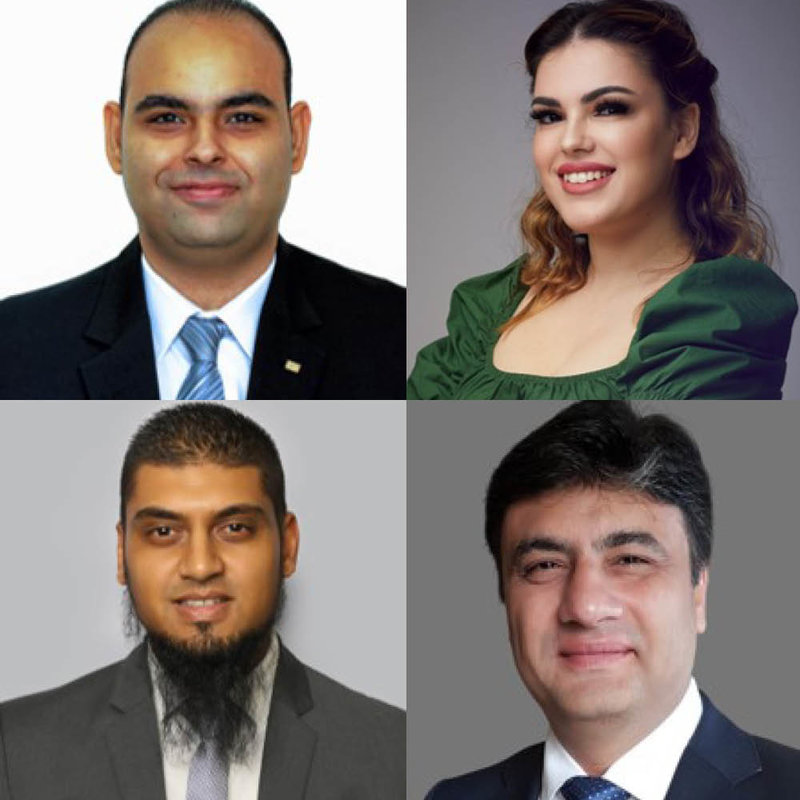CEO INTERVIEW
The RSM Virtual Academy promotes problem solving amongst its rising stars
RSM International CEO Jean Stephens discusses the merits of the network's new development programme with Zoya Malik

Zoya Malik: What is the objective of the RSM Virtual Academy?
Jean Stephens: First and foremost, an inherent part of our culture is our commitment to invest in the people of RSM, as they in turn will invest and share their knowledge in serving their clients to deliver The Power of Being Understood.
The RSM Academy was designed specifically for the rising stars within the RSM network to come together and take part in multi-cultural, multi-disciplined teams with the aim of collaborating on a proposal which offers a solution to an international client’s cross-border issue. Participants undergo a process which involves a challenge with problem-solving practical modules, alongside relevant tutorials by leading experts.
By working in collaborative teams, the aim is to develop a broader understanding of how our colleagues and clients think and work in different cultures and markets around the world, which will help to strengthen both the quality of our service delivery and client experience. There is a lot of power in working together and problem-solving in teams.
Jean Stephens, CEO, RSM International
ZM: Why is this a good time to launch?
JS: The RSM Academy has been a highly effective and long-standing programme and with the current situation with restricted travel, we saw this as the perfect time to launch the RSM Academy virtually to many more people globally.
The pandemic may have caused business disruption, but it has also accelerated the pace of digital transformation and been a catalyst for change. This was the perfect opportunity to innovate, adapt and connect in a meaningful way to an even greater number of rising stars within our global community.
Covid has forced us to reconsider many of our business practices, particularly in the context of collaboration, learning and sharing. This has enabled us to be more inclusive as to who can participate or contribute towards RSM’s global events and initiatives.
ZM: What investment has been made to launch the RSM Virtual Academy?
JS: The RSM Academy was originally designed as a week-long, face-to-face event, so moving this virtually required a dedicated project team to tailor the programme to a virtual environment.
The project team designed the programme using learnings from the in-person academy in addition to working with the Roffey Park Institute, a leading international, research-led learning and development organisation. We tailored it to the remote environment to make it an immersive virtual experience.
From a member firm point of view, their investment is in empowering their representatives to devote some 35 hours over a two-week period for the academy, in addition to pre-academy e-learning assignments which were designed to equip them with core information prior to the event.
ZM: What are the criteria for candidate selection?
JS: We were overwhelmed with interest, which resulted in just short of 300 candidates this year.
The individuals selected were high performers at senior manager, director or partner levels, and they needed to have a good understanding of serving clients. Importantly, the nominated individuals needed to be actively involved in international engagements, or proactively planning to do so.
After being nominated by managing partners, candidates were assessed by their level of experience – on average somewhere between eight and 10 years.
ZM: Who is the target audience and where globally will you receive most applications for courses?
JS: Ultimately, the aim of the Virtual RSM Academy is to coach and empower RSM professionals to deliver high-quality services and an exceptional client experience for their internationally active clients.
Another key objective is to develop and strengthen connections amongst professionals the world over which also contributes to a sense of connection to RSM internationally.
Although the Virtual RSM Academy was designed ultimately as a global programme, participants were selected to take part in regional programmes, working and competing as a team towards a global finale.
The regional programmes were designed carefully to ensure there was a cultural mix which also included representatives from different sized economies and different disciplines, while working around time-zones. Therefore, delegates from North America were split across two of the regional programmes.
This year saw delegates from 17 member firms from the Africa and Middle East group. The Asia-Pacific and North America group was represented by 15 member firms. From the Europe and North America regions there were participants from 27 countries. Finally, in the Latin and North America group there were participants from 21 countries in the virtual academy.

The winning team members (clockwise from top left): Eslam Ahmed (Egypt), Eugénia Pião (Mozambique), Ozeyr Ahmed (South Africa), Rahul Hariyani (UAE)
ZM: What training modules are being rolled out
JS: Prior to attending, delegates were asked to complete a series of e-learning modules to deepen their understanding of the RSM network. The pre-work included e-learning about RSM’s history as well as about the Network’s global strategy.
During the programme, the events were divided into two sections, learning modules and collaborative team sessions. Topics included in these modules were digital and innovation, behavioural science, technical service insights, branding, and diversity and inclusion – all tailored to enable delegates to prepare for the specific fictitious client proposal.
The pre-work simulated in the context of the virtual event was reflective of the experience a cross-border team might have when collaborating on a proposal for an international client and was supported by a significant number of tools for global business development which were available in RSM's global e-learning platform.
ZM: What is the duration of training?
JS: The e-learning pre-work took place throughout August, while the regional events lasted between two and three hours per day over 10 working days in September.
The winners from each regional event were then tasked to refine their pitches and take part in the global final, which was an hour and a half long. All the teams competing in the final were winners in their own right – however, the winning team was announced at the global finale, which took place on Thursday, 7 October.
All sessions were aimed to balance the busy schedules of our team members in serving clients with enabling the teams to collaborate towards their final goal of delivering their final presentation to the global client board.
ZM: How does the RSM Virtual Academy compete with other training courses? What differentiation does it offer?
JS: Over the last 14 years, our case study-led training simulation has helped RSM professionals work effectively as cross-cultural and cross-national teams to identify and solve unique client issues. These skills are invaluable to anyone who works in multi-disciplinary teams on cross-border work in what has been an increasingly globalised world.
The RSM Academy participants leave the experience equipped with critical insight around operating in cross-border teams, a deeper understanding of relationship building and working with different cultures and an enhanced knowledge of RSM’s global resources, common tools for business development and new digital innovations impacting our profession.
Due to the virtual nature of this year’s event, there was an even greater sense of connection with RSM as a global organisation, as the event genuinely extended across borders - far more so than via the 60 people face-to-face-event of previous years.
Now that the RSM Academy events have finished, all the delegates have been transferred to the RSM Academy Alumni Community to connect with the other 600-plus academy alumni from prior years. This ensures the networks and connections developed can be maintained.
ZM: What is the cost of training for the candidate?’
JS: There were no financial costs for participating candidates. Participation is completely free, although it is important to acknowledge that for member firms the cost translates directly to the investment of their employees’ time in taking part in the events.
ZM: How many candidates signed up, and when did the first pass through?
JS: There were hundreds of nominations globally, and the Virtual RSM Academy saw just short of 300 successful nominees take part.
The four regional winning teams came together for a special announcement on 4 October in which they received news of a twist in the challenge. This required them to move fast to refine their pitches to reflect the news from the ‘client’. Final presentations were made on 6 October with a team from Africa and MENA being ‘appointed’ by the fictitious client board of directors as the overall winning team, which was announced on 7 October.
Beyond the investment in developing those who took part, a key objective of the 2021 Virtual RSM Academy is to build on the bonds formed to strengthen connections. This year’s participants will be joining the wider global RSM Academy Alumni Community in an event on 18 November, in subsequent quarterly events and will stay connected on LinkedIn and have access to further training on our e-learning platform.